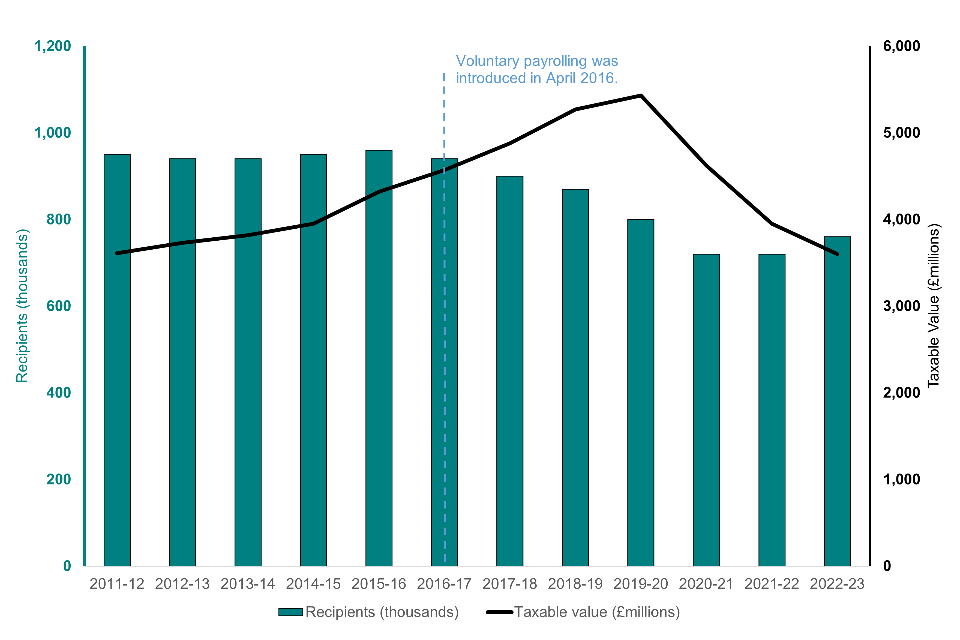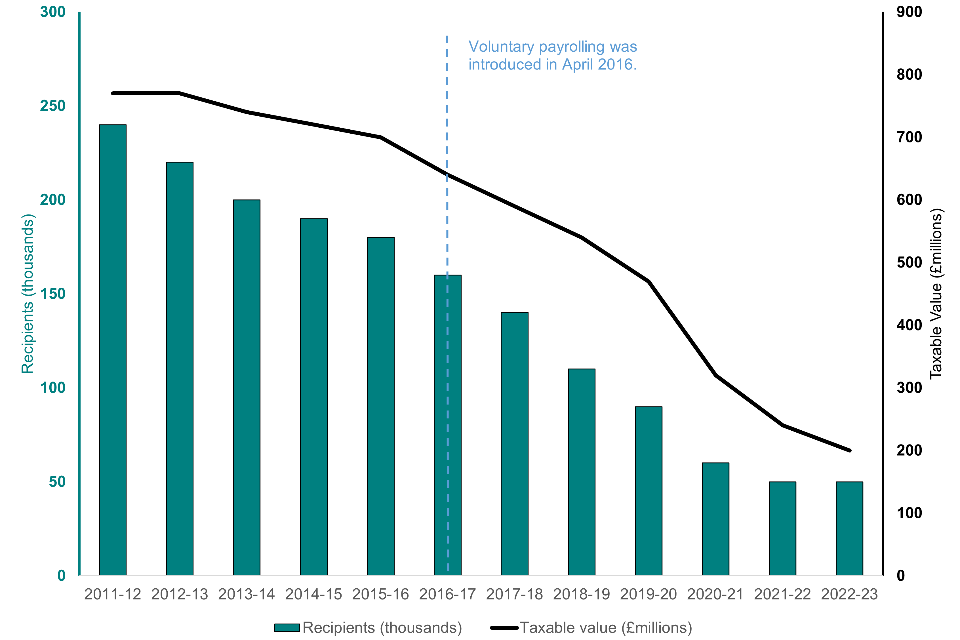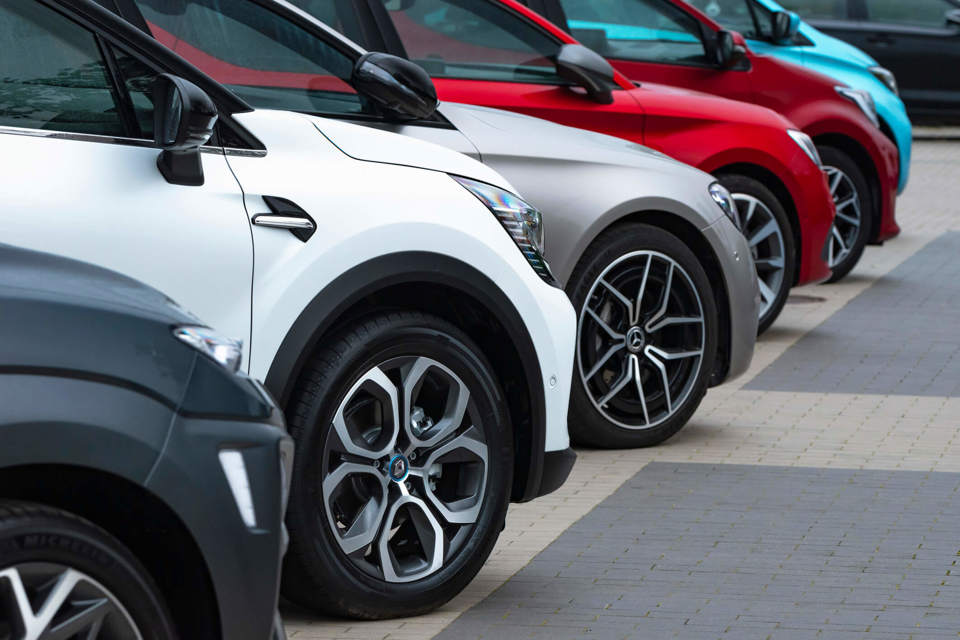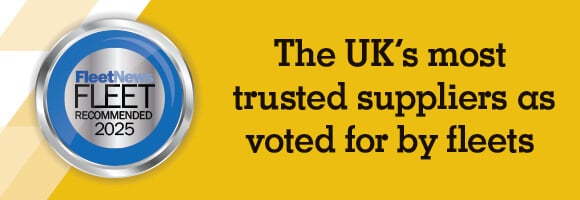The number of employees paying company car tax has risen by 40,000 year-on-year – a 5.5% uplift and the first increase since 2015 – new figures from HMRC show.
The latest benefit-in-kind (BIK) statistics show that there were 760,000 employees paying company car tax in 2022/23, compared to 720,000 the previous tax year (2021/22).
Number of recipients and total taxable value of company cars

Source:HMRC
Growth can be attributed, in part, to the growing popularity of salary sacrifice schemes for cars.
HMRC also acknowledges that the number of company car drivers could be even higher, with “considerable underreporting” after voluntary payrolling was introduced in April 2016.
The number of company car drivers had been steadily declining since 2015/16, when there were 960,000 employees paying BIK on a company vehicle.
The total taxable value of company car benefit was £3.6 billion in 2022/23, down from £3.95bn in 2021/22.
Total income tax and NIC liabilities arising from company car benefit were around £1.21bn and £520 million respectively.
Over the period from 2011/12 to 2019/20 the total taxable value of reported company cars increased significantly from £3.61bn to £5.43bn, but fell to £4.62bn in 2020/21, £3.95bn in 2021/22 and £3.6bn in 2022/23.
The increase to 2019/20 was primarily due to increases in the ‘appropriate percentages’ used to calculate the taxable value of a company car, and to a lesser extent increases in the average car list price, said HMRC. These offset the falling number of company car drivers.
By contrast, in 2020/21 the total taxable value decreased. This was driven by a reduction in the number of company cars and a shift towards electric powered cars which are subject to lower BIK tax rates.
HMRC says that the drop in the number of company car drivers in 2020/21 is expected to have been exacerbated by the impacts of the pandemic and associated reduction in economic activity.
“Changes in work practices during that period may have continued into 2021/22,” it added. “The increase in company car drivers in 2022/23 may indicate a slight return to more normal activity.”
Shift to electric company cars continues

The shift to electric powered cars has continued through to 2022/23, with almost a quarter of million company cars fully electric.
In 2002/03, 58% of company cars had reported emissions of 165g/km or more. The latest HMRC statistics show that only around 2% of company cars had reported CO2 emissions of 165g/km or more in 2022/23.
The number of reported recipients of company cars with CO2 emissions of 75g/km or less was 369,000, up from around 243,000 in the previous tax year.
This includes fully electric cars which numbered 50,000 in 2020/21, rising to 125,000 in 2021/22 and 222,000 in 2022/23 - 29% of the company car fleet.
The HMRC statistics, meanwhile, show that there has been a significant shift in the proportion of diesel company cars.
Diesel cars accounted for around 80% of company cars up to 2017 with a steady decline through to 49% by 2020/21.
The proportion of company cars using diesel fuel reduced to 23% (170,000) in 2022/23.
One effect of the increase in electric cars is that they have helped reduce the average CO2 emission rate of company cars to 86g/km.
Even after excluding electric cars from the average, the average CO2 emission rate has reduced to 99g/km confirming a trend towards lower emission fossil fuel cars.
The number of ultra-low emission vehicles (ULEVS), with CO2 emissions no greater than 75g/km (but not zero emission), have also increased steadily in recent years from 5,000 in tax year 2014/15 to 147,000 in 2022/23.
Ian McMahon, parter at UHY Hacker Young, said: “There are major Government incentives on the use of electric vehicles as company cars.
“Employees only have to pay a tax charge on 3% of the value of an electric company car’s value per year versus up to 37% of the value of a normal car.
“The huge increase in electric company cars shows electric vehicles can keep growing market share if they are properly subsidised.”
Car fuel benefit
Some 50,000 individuals reporting company car benefit were also in receipt of car fuel benefit, the same as in 2021/22. This is about 7% of all car benefit recipients (down from 8%).
The total taxable value of car fuel benefit has fallen steeply from £470m in 2019/20, to £240m in 2021/22 and to £200m in 2022/23.
Total income tax and NIC liabilities for car fuel benefit were around £70m and £30m, respectively.
Number of recipients and taxable value of fuel benefit

Source: HMRC
The average taxable values for car benefit and car fuel benefit in 2022/23 were £4,750 and £4,260, respectively, down from £5,520 and £4,660 the previous tax year.























Login to comment
Comments
No comments have been made yet.